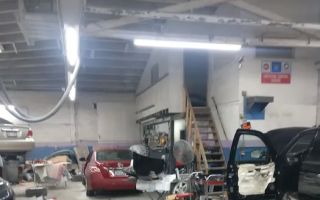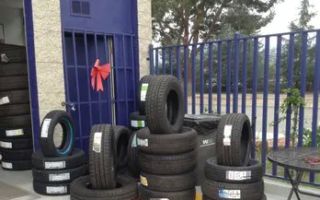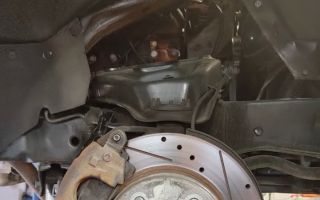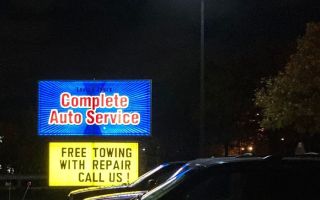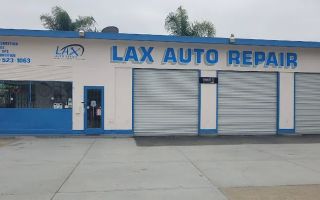What Type of Flat Tires Can Be Repaired: A Comprehensive Guide
- Understanding Flat Tires
- Common Causes of Flat Tires
- Types of Flat Tires That Can Be Repaired
- When to Replace a Flat Tire
- Tips for Preventing Flat Tires
- Personal Experience with Flat Tire Repairs
Understanding Flat Tires
As a car owner, encountering a flat tire is something we all face at some point. Whether you’re on the road to work or enjoying a weekend road trip, a flat tire can quickly turn your day upside down. But did you know that not all flat tires are created equal? In some cases, flat tires can be repaired, while in others, they need to be replaced. In this article, I’ll dive into the different types of flat tires, what causes them, and when they can be safely repaired.
Having personally dealt with multiple flat tire incidents, I’ve come to realize that understanding the cause of the flat tire and knowing when to repair versus replace can save both time and money. Let’s break down the various aspects of flat tires and help you determine if your tire is repairable or if it’s time to head to the tire shop.

House of Tires
3146 Hempstead Tpke, Levittown, NY 11756, USA
Common Causes of Flat Tires
Flat tires happen for various reasons, and each cause affects the tire differently. Understanding these causes can help you prevent them in the future and help you figure out if your tire can be repaired. Some common causes of flat tires include:
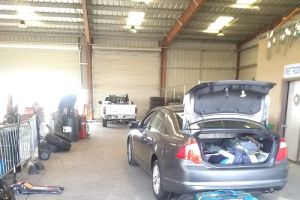
Gutierrez Tire Inc
14820 Aloma St, Lost Hills, CA 93249, USA
2.1 Punctures from Sharp Objects
One of the most common causes of a flat tire is a puncture from a sharp object, such as a nail, screw, or piece of glass. This typically results in a slow leak, and in many cases, it’s possible to repair the tire. I once had a screw puncture my tire while driving down a city street. Luckily, it was repairable, and I was able to fix it on the spot with a plug kit.
2.2 Valve Stem Issues
Another cause of a flat tire is a malfunctioning valve stem. If the valve stem becomes cracked or damaged, air can escape from the tire. This issue is often easily fixed by replacing the valve stem, rather than needing to replace the entire tire.
2.3 Sidewall Damage
Sidewall damage is one of the most difficult issues to fix. If the sidewall of your tire is punctured or cut, the tire usually cannot be repaired. I’ve personally experienced this after running over a sharp object that caused a tear in the sidewall, and unfortunately, it required a full tire replacement.
2.4 Over-Inflation or Under-Inflation
Improper tire inflation can also lead to flat tires. Over-inflated tires are prone to bursting, while under-inflated tires can cause the tire to wear unevenly, increasing the risk of a blowout. It’s important to regularly check tire pressure, and I always make it a point to do so before any long road trips.
Types of Flat Tires That Can Be Repaired
Not all flat tires need to be replaced. Depending on the nature and location of the damage, many flat tires can be repaired. However, there are specific types of damage that make a tire repairable. Here are the common types of flat tires that can often be repaired:
3.1 Punctures in the Tread Area
If the tire is punctured in the tread area (the part of the tire that touches the road), there’s a good chance it can be repaired. As long as the puncture is less than ¼ inch in diameter and the tire isn’t too worn, most tire shops will be able to patch the tire. This was the case for me when I once picked up a nail on the highway—it was a simple repair and didn’t require a full replacement.
3.2 Minor Cuts or Gashes in the Tread
If the cut or gash is small and located within the tread area, it may be repairable. As long as the damage hasn’t gone too deep and the tire is otherwise in good condition, a professional repair can seal the tire safely. I’ve had this happen once when I drove over a sharp piece of metal, and it was repaired by a tire technician in less than an hour.
3.3 Valve Stem Replacement
When the problem is with the valve stem (where you inflate the tire), it’s usually a simple repair. I’ve had a flat tire caused by a leaking valve stem, and rather than replacing the whole tire, the valve stem was replaced, and the tire was good to go.
When to Replace a Flat Tire
While many flat tires can be repaired, there are some situations where replacing the tire is the best option. Here are a few situations in which replacing a flat tire is necessary:
4.1 Damage to the Sidewall
If the tire is punctured or cut in the sidewall, it’s generally unsafe to repair it. The sidewall is the most vulnerable part of the tire, and if it’s compromised, it could lead to a blowout while driving. I’ve unfortunately experienced this, and it’s important to replace the tire immediately to ensure your safety.
4.2 Large Punctures or Multiple Punctures
For large punctures (greater than ¼ inch) or multiple punctures close to one another, repairing the tire may not provide a secure or long-lasting fix. In these cases, I would recommend replacing the tire to avoid potential risks of further damage or blowouts.
4.3 Worn-Out Tires
If your tire is extremely worn out with little tread left, it may be time for a replacement. Worn tires are more susceptible to punctures and can be dangerous, especially in wet conditions. I always make sure to check the tread regularly and replace my tires before they become too worn.
Tips for Preventing Flat Tires
While flat tires are sometimes unavoidable, there are steps you can take to reduce the likelihood of experiencing them. Here are some tips to help you prevent flat tires:
5.1 Maintain Proper Tire Pressure
Always ensure that your tires are properly inflated. Under-inflated tires are more prone to punctures, while over-inflated tires are more likely to burst. I check my tire pressure regularly, especially before long trips, and make sure it matches the manufacturer’s recommended pressure.
5.2 Avoid Driving Over Sharp Objects
Avoiding sharp objects like nails, glass, or debris on the road can help prevent punctures. I’ve learned to drive carefully, especially on roads that might have construction or scattered debris, to avoid getting a flat tire.
5.3 Regular Tire Inspections
Regular tire inspections can help you identify any potential issues before they lead to a flat. Look for signs of damage, cracks, or wear. I recommend bringing your car in for routine tire checks to ensure everything is in good condition.
Personal Experience with Flat Tire Repairs
Throughout my years of driving, I’ve had my share of flat tires. One memorable incident happened during a road trip when I picked up a nail in the tire. Fortunately, I was near a tire repair shop, and they were able to patch it up quickly. I learned that having the right tools on hand, like a portable air compressor and a tire repair kit, can save you time and money in an emergency situation.
For more information or help with your flat tire situation, I highly recommend contacting Rescue & Towing. They offer fast and reliable towing and tire repair services to get you back on the road safely and quickly!

